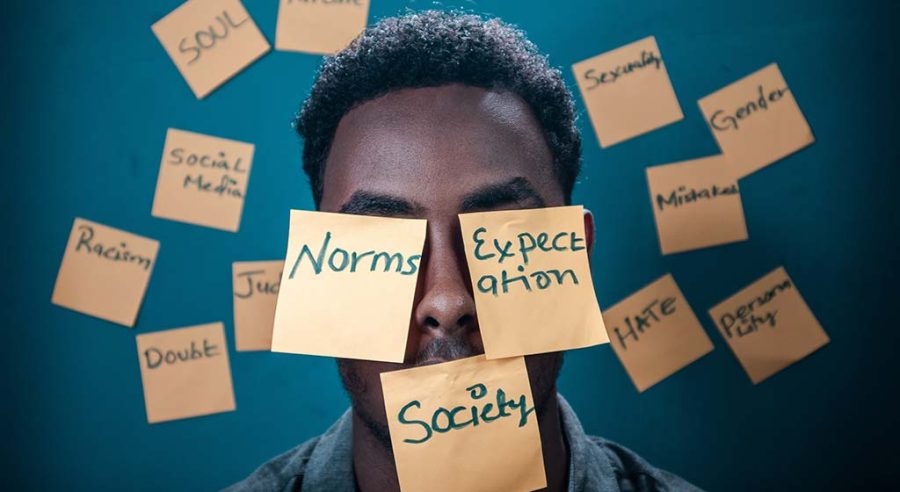The Evils of Perfectionism
February 2, 2023
Whether it is in the social, academic, or athletic realm, many of us face the desire to be the best of the best. A few common examples are trying to have the best looks in school, get higher test scores than our peers, or be the best athlete on the court or field. Society has instilled in us this mindset that we need to live up to unrealistically high standards. Why?
Physical Appearance Perfectionism
Today, many teens think they need to obtain the perfect body, hair, clothes, and style. This social pressure comes from the belief that if one has these things, they will be accepted by others. This eventually leads to people manifesting their self-worth in their appearance. What people do not realize is that this road can lead to a multitude of dangers, such as eating disorders, depression, and lower self-esteem. Social media has created a standard look that is perceived by many as “perfect.” What we need to do is realize that everyone is different and that we will never fit into that perfect perception. What if the person you admire so much had plastic surgery? An eating disorder? Depressive thoughts? Instead of trying to be someone else, we should embrace everyone’s unique looks, interests, and styles. Being yourself will make you so much happier than imitating someone else would.
Academic Perfectionism
Many people also face academic pressures around them. Why do people push themselves past their limits? Why do they feel like getting a B is failing? The root cause can be high standards that come from parents, competition among students around them, and sometimes even extreme pressure from oneself. Even here at Adams, it is a prevalent issue, especially within the International Baccalaureate program. A popular view is that failing academically will lead to overall failure in life. If you were once praised or rewarded for having the best grades, this could also be a significant motivator. We need to be at peace with academic imperfection. Use failure as an opportunity to learn instead of continually pushing yourself. Pushing yourself to accomplish things beyond your limits can actually have the opposite effect. It can cause academic burnout, which leads to procrastination and, in turn, drastically drops your grades. Additionally, this can lead to anxiety, low self-esteem, and even suicidal thoughts. Instead, take a course load that you can challenge yourself with but that you will be able to enjoy, handle, and learn from. Don´t compare your scores or progress to your classmates’. You have the ability to achieve so much more when you keep a steady, ongoing pace. We´re all worth more than a letter or a number on a piece of paper.
Athletic Perfectionism
Athletic pressure can come from the competitiveness of the sport itself, coaches, and even teammates. Maybe your goal is to make the highest team, or beat a record. Instead of having these types of goals, athletes should focus on the joy of the sport. Yes, competitiveness is a part of almost all sports, and it feels good to win, but that does not mean you have to be perfect. It’s okay to lose a game or disappoint your team. You should enjoy the sport you’re pursuing and compete for your joy and love of it.
Ultimately, one thing we often fail to realize is that we will never be perfect. We will also never be the best at anything. Being the best is usually based on opinion, and everyone’s opinions differ. Whether you have the most friends, buy the most trending outfits, are at the top of your class, or achieve a national athletic record, you will always be searching for more– something better. As long as we keep searching for more, we will never be fully satisfied. In order to overcome perfectionism, we must disassociate our self-worth from the opinions of others. Once we accept ourselves for who we are, we will stop feeling the need to feel perfect, and our authenticity will stand out.



